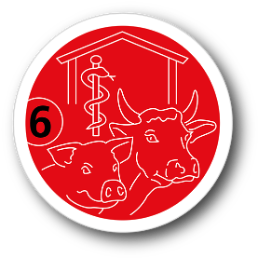How can animal housing systems and the use of animals be optimised with regard to animal welfare, animal health, and resource efficiency in agricultural production systems, whilst bearing in mind the demands of society as well as economic and ecological parameters?
- What behaviours are essential in livestock for maintaining well-being and biological functions (health, growth, reproduction) and to what extent must these behaviours be enabled?
- How can the well-being of farm animals, or their positive and negative states, be measured? What methods and indicators can be used to determine and assess animal welfare?
- What forms of housing and/or technical tools (devices such as feed dispensers, resting areas, floor coverings, etc.) as well as management practices (feedstuffs, manner of feed distribution, preventive health care, hygiene measures, bedding materials, climate regulation, etc.) meet the demands and needs of livestock and contribute to a reduction in the use of antibiotics?
- What feeding strategies can be used to prevent diet-related metabolic disorders?
- What are the causes of housing- and use-related diseases, loss of performance, injuries, and behavioural problems, and how can they be reduced?
- What are the effects of performance-oriented breeding advances (e.g. highly fertile sows, high-yielding cows, etc.) on animal well-being, and what services are still justifiable from the animal-welfare perspective as a function of the production system (e.g. grassland-based milk and meat production)?
- Which agricultural and beekeeping practices have positive/negative impacts on bee health?






